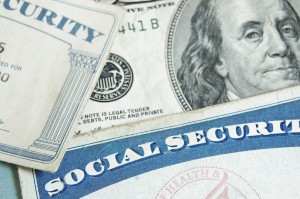
Inflexible policies, old technologies, unpopular trends and poor security standards have crippled the U.S. financial system over the past 10 years. But as the economy continues to improve from the financial collapse of 2008, many adults are looking for innovative ideas and policies to ensure the future economic viability of retirement plans, mainly Social Security.
“It’s hard paying into a system that is broken and won’t provide any return to a person’s future,” said Cody Best, a financial advisor at Cambridge Financial in Holladay. “All adults should be actively investigating other retirement options.”
Social Security provides a monthly income to workers and families who have reached the retirement age, become disabled or died. The program, which now provides benefits to more than 50 million people, is financed by the taxes paid by 150 million American workers.
Many people have forewarned others of the program’s impending collapse for years. The program’s status will become exhausted by 2037. Congress will need to approve major changes that will result in large tax hikes and benefit cuts to prevent the collapse and ensure the sustainability of Social Security, according to the Social Security Administration.
“Historically, we wait until the last minute before making any changes in government programs and funding, which inevitably results in a Band Aid being placed on a broken bone,” Best said.
The swinging pendulum will affect multiple financial platforms like public investments, resulting in millions of Americans who would suddenly be unable to retire, according to Politico.
“It’s the classic example of diminishing returns,” said Bill Keifer, an economist living in Highland who’s currently transitioning to a new career in search of better retirement benefits. “We keep getting less and less but spend more and more.”
Employees can be disappointed when they look to their company to provide retirement packages. They find that many private companies are now shedding retirement and pension plans because of the unstable system, according to Investopedia.
“Many companies are closing the doors on privatized retirement plans because of their high costs,” said Jake Schroader, president of GS Labs in Draper. “Without government regulation or assistance to curb those costs, people will have to rely more heavily on their own personal investments to support them through retirement.”
“A departure from the narrow mentality that has continually weakened financial platforms will mean a return to a more complete economy — one that’s broad and rich rather than superficial, repetitive and covered in Band Aids,” said Mary Franklin, of Kiplinger.
Individuals will have to get more involved to accomplish the required change.
“People need to get more informed and engaged in putting pressure on lawmakers to make transformations to expiring government plans that they are financing each time they get a paycheck,” Schroader said.




